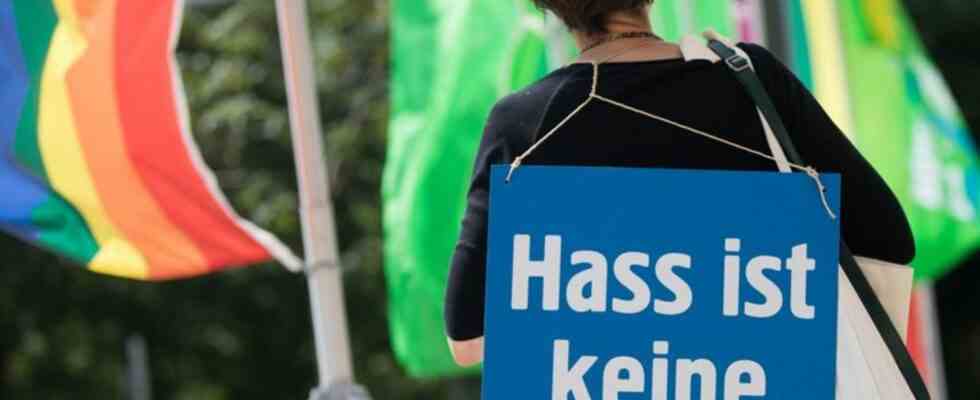New EU law
“Basic Digital Law” of the EU: Decisive negotiations
Hate often knows no borders on the Internet – this should soon be over in the EU. Photo: Frank Rumpenhorst/dpa
© dpa-infocom GmbH
So that the Internet doesn’t continue to be like the Wild West, the EU wants a law that should ensure less hate and more youth protection on the Internet. An agreement could be reached today.
The European Union could take a big step in regulating the internet this Friday.
An agreement on a law on digital services (Digital Services Act, DSA) between negotiators of the EU states and the European Parliament is considered likely. However, the negotiations (10.00 a.m.) could go on until late in the evening.
Among other things, the DSA is intended to ensure that illegal content such as hate speech is removed from the Internet more quickly, harmful disinformation and manipulation are shared less and fewer counterfeit products are sold on online marketplaces. The basic principle is: What is illegal offline should also be online. Providers of digital services should benefit from legal certainty and uniform rules in the EU. Large platforms with at least 45 million users have to follow significantly more rules than smaller ones.
Digital package of the EU with two parts
The DSA is part of a large digital package proposed by the EU Commission in December 2020. The second part is the Digital Markets Act (DMA), which was agreed at the end of March. Above all, the DMA is intended to restrict the market power of tech giants such as Google and Facebook with stricter rules.
In the future, the DSA will probably have to remove illegal content such as hate speech as quickly as possible. A guideline should be 24 hours. Marketplaces should be obliged to check providers so that fewer counterfeit products end up on the net. Manipulative “dark patterns” that urge consumers to make a purchase decision are also to be banned.
Personalized advertising regulated soon?
Sensitive data such as religious beliefs, sexual preferences or political views may no longer be used for targeted advertising. In principle, minors should not see any personalized advertising. Social networks, for example, must also make their recommendation algorithms more transparent and offer users options when designing their feeds. Violations are subject to severe penalties.
Against false information on large platforms
Particularly large platforms with at least 45 million users must regularly carry out a risk assessment and propose countermeasures with regard to harmful content such as propaganda and disinformation. In addition, researchers should have access to the data and algorithms.
The SPD MEP Tiemo Wölken sees a “new digital basic law” in the DSA. “It creates clear rules of the game for platforms, defines rights for users and ensures that there is general supervision of the requirements.”
In Germany, the Network Enforcement Act (NetzDG) to combat criminal offenses and hate speech on the Internet is already in force. This should be largely replaced by the DSA.

